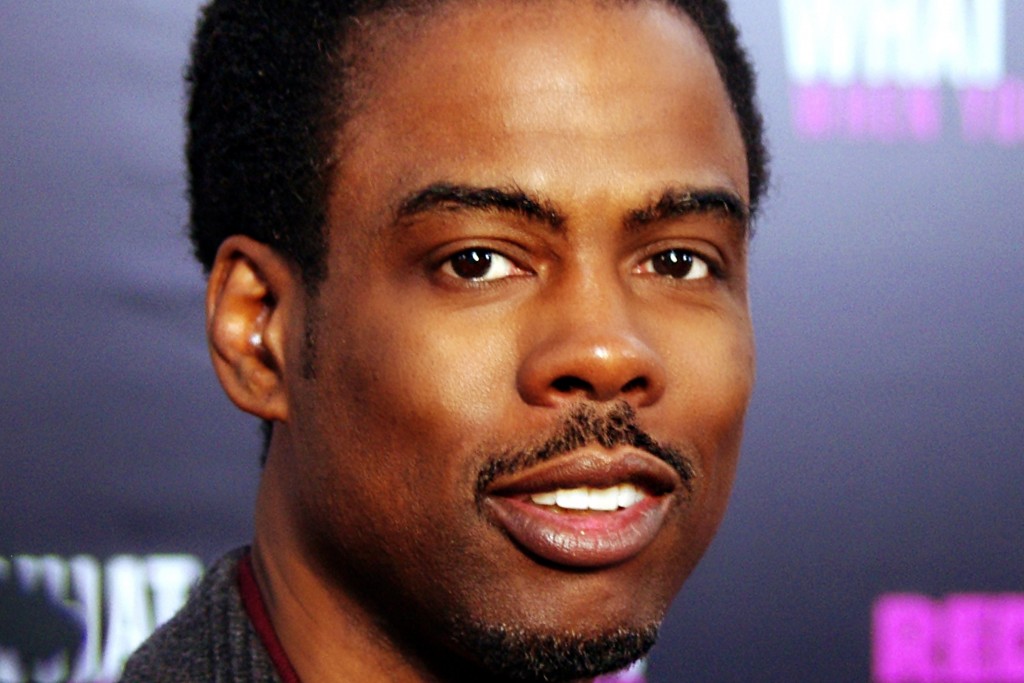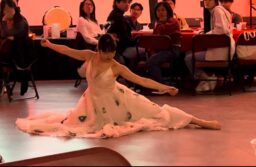
Courtesy of David Shakebone, Wikipedia
This year’s Academy Awards ceremony was set up to be controversial before it even began, with the viral spread of the #OscarsSoWhite hashtag pointing out the glaring lack of people of color as nominees for the show’s top acting categories. Dozens of black actors vowed to boycott the ceremony, and host Chris Rock came out almost immediately with jokes that brought up the ways in which black actors and actresses were snubbed by the Academy.
While following the news of the #OscarsSoWhite boycott movement, I couldn’t help but notice the ways in which the conversation tended to focus only on black and white, ignoring the fact that no people of color of any ethnicity were nominated for acting awards this year. However, I didn’t feel the need to speak out and criticize anyone for this lack of inclusion – most of the actors and actresses who didn’t get nominated but appeared in major films this year were, in fact, black, such as Michael B. Jordan, who appeared as the lead character in “Creed,” and Will Smith, who played the lead role in “Concussion.”
When I finally tuned in to watch the Oscars themselves, waiting with anticipation to see what host Chris Rock would say about all of the controversy, I again noticed the way in which Rock focused all of his attention on black actors and actresses only, but again had no strong feelings about it. As someone who is half white and half Asian, it’s not really my place to criticize what a black comedian has to say about the treatment of other black people. However, everything I had been feeling about the invisibility of Asian-Americans in the #OscarsSoWhite conversation finally came to a head when Rock, a little over halfway through the ceremony, brought three young East Asian children on stage, only to make jokes about them being good at math and being Chinese factory workers while they stood in silence.
I was stunned, but perhaps I shouldn’t have been. Rock’s jokes were highly reminiscent of the ones I heard constantly from my classmates, starting from kindergarten and persisting all the way to the end of high school, about how I only got good math grades because I was Asian, or, when my math grades started to slip, how I must be bringing “dishonor” to my family. They were also very reflective of the Asian-American representation I have seen on TV and in films throughout my entire lifetime. I suppose I expected more of Rock, who so far had been using his platform to satirize racial stereotypes, not perpetuate them or use them as a cheap tool for his comedy act. Instead, Rock added insult to invisibility, using his opportunity to remind people that Asian-Americans also exist to remind us that we’re only good for jokes about math and child labor.
The problem with Rock’s Asian jokes is multi-faceted. I think one of the biggest problems with them, and the reason they stood out so much to me and many others, is that they were directed at children. There is an unofficial rule in comedy that jokes should “punch up” and not “punch down” – that insults and mockery should be directed at those with more power than you, and never at those with less power. One can’t punch much further down than at innocent children, who don’t have the ability to stand up to an adult who is mocking them. Seeing those three little kids on stage with clueless, innocent expressions on their faces, next to a grown man making comments about their race, was cringeworthy and infuriating, to say the least.
An article on Public Radio International’s website confirmed that at least one of the children, 8-year-old Estie Kung, and her parents did not know the exact nature of the joke when they agreed to her appearance. Kung is actually a prestigious young chef who has appeared on the show “Man vs. Child: Chef Showdown” and achieved some fame touring the world to promote the show – but to the Oscars audience on Sunday, she was just an Asian face to pair with Rock’s racial jokes.
Another problem with the jokes is that they played on stereotypes and insults that many Asian people are all-too-familiar with. I have to wonder how many other Asian-Americans watching the Oscars that night were reminded of the treatment they have received throughout their lives, or how many East Asian children watched with intrigue as three kids who looked like them walked on stage as Rock made the same jokes they would be hearing from their non-Asian peers at school the next day. Rock’s jokes perpetuate the idea that employing racist East Asian stereotypes – even bullying East Asian kids over their race – is okay. In reality, these seemingly harmless stereotypes, even if they are positive stereotypes, do take a toll on Asian-Americas, especially young Asian-Americans growing up under a constant barrage of these stereotypes.
From personal experience, I know that the “good at math” stereotype can increase one’s pressure to excel based on race-based expectations, and increase feelings of shame when one does not meet these expectations. In addition, according to Jennifer Wang, John Oliver Siy and Sapna Cheryan in “Racial Discrimination and Mental Health Among Asian American Youth,” where they analyze a wide range of research regarding the topic, dealing with anti-Asian stereotypes and other forms of anti-Asian discrimination, can lead to an increased risk of mental health problems, such as depression and substance abuse problems for Asian-American children and adolescents. Asian-targeted mockery is not without consequences.
Finally, Rock’s jokes were in poor taste because they “punched down,” not only at the children on stage, but at the children and adults who actually are the victims of human rights violations working in factories that make cell phones and other devices. Rock attempted to defend his initial joke about the children being accountants – i.e. good at math – by saying, “If anybody’s upset about that joke, just tweet about it on your phone that was also made by these kids.” Some could say that Rock was rightfully pointing out the hypocrisy of people in the United States who are reliant on products created through unethical labor practices. But if one is being realistic, Rock wasn’t heroically trying to spread a message about mindful consumerism – he was trying to get a laugh by bringing up an issue that involves people working unimaginable hours for weeks in a row, working in cramped, dangerous conditions and, in some cases, being driven to suicide, according to BBC News.
Rock’s ill-conceived, badly timed and unoriginal jokes were not redeemable in any way – not only were they not funny, they were a cruel jab at a group of innocent children who were probably thrilled to appear on the Oscars stage, and an insult to all Asian-Americans who are too often ignored unless they’re being tokenized or stereotyped for someone else’s amusement. It is worth it to mention that comedian Sacha Baron Cohen also made a groan-inducing Asian joke during his brief appearance as a presenter on the Oscars stage, but it did not receive as much rage, likely because it didn’t involve three children who will always have to remember that they were mocked in front of 34 million people.
lfrench@ramapo.edu





